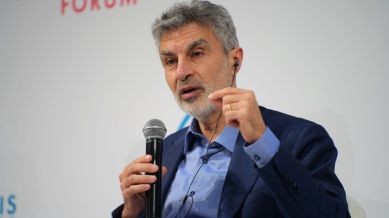‘The possibility of human extinction’: What keeps the ‘Godfather of AI’ awake at night
Artificial Intelligence is briskly progressing, but the Godfather of AI has something for all of us to ponder.

Yoshua Bengio, also known as the Godfather of AI, acknowledges that while unchecked artificial intelligence (AI) was not the top of his concerns until a few years ago, a lot has changed since. Bengio, in his latest interview, shared his views about the risks of AI and his efforts to address them.
“Whoever will control very advanced AIs in the future will have huge power. And they could use that power in ways that are good for them, maybe, but not for most of us,” Bengio told Nature.com.
Bengio, who currently serves as a computer scientist at the University of Montreal in Canada, won the AM Turing Award in 2019. In October, the 61-year-old became the first to top one million citations on Google Scholar. He is known as the pioneer of deep learning techniques that are the foundation of modern AI.
When asked what changed his perception about risks posed by uncontrollable AI, Bengio shared that when ChatGPT was introduced in November 2022, it took him about three months to fully comprehend that the world was on a path that could be ‘extremely dangerous’. He admitted that though he was impressed initially since deep learning reached a summit. “I realised that because of the nature of these systems, we didn’t know how to make sure they would behave in the ways that we want.”
He told the publication that he began thinking about his grandchild 20 years from now and thought, ‘Will he have a life?’ ‘Will he live in a democracy?’ The scientist firmly believes that there are other existential risks if the power of AI lies in the wrong hands.
Bengio went on to explain that there are people who may, for ideological reasons, ‘press the red button’ and ask AI to do something terrible that may cause the deaths of billions. And this could be like unleashing a dangerous virus or even mirror bacteria that could kill animal life on Earth.
Bengio currently chairs an international panel of advisors on AI which recently came out with its International Scientific Report on the Safety of Advanced AI. The report identified three areas of risk, such as risk from malfunctions, misuse, and systemic risk such as job loss. When asked what concerned him the most, Bengio shared that while malicious use is prevalent, what keeps him awake at night is the possibility of human extinction. He said this is why he switched to researching how to create non-harmful AI. “And I now think that it is possible to do it. So it’s big progress in my mind. I’m much more optimistic about this.”
Bengio advocated for stronger guardrails to mitigate risks posed by the malicious use of AI. He feels that these guardrails should be both technical and political, essentially imposing regulations or incentives to ensure companies do the right thing to mitigate these risks.